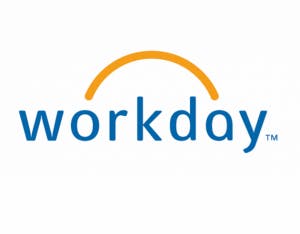You could make the case that while Workday Inc (NYSE:WDAY) likes to operate under the radar, investors are starting to pay attention. Since its initial public offering back in October, the price has gone up 28%. That’s a steady increase. But it leads one to wonder if Workday, in its current $60 price range, is a bit overvalued.

But, that might just be why the stock has performed so well as of late. Since the end of 2012, Workday’s stock price appreciated 15%. When you consider the attraction it is receiving from larger funds, one could consider that it is entirely possible that the stock’s overall performance can be attributed to institutional interest.
But, can that interest really be the entirety of Workday Inc (NYSE:WDAY)’s overall stock performance? Let’s take a look at the performance of the company itself. Workday has only produced operating losses since it has gone public. Its operating costs have risen sharply in the past year. Of course, since the company recently had an IPO, it has been able to raise cash, and revenue seems to be increasing as the company attracts more customers to its services.

Any investor should be wary of a company with losses like this. It seems that investor confidence in Workday Inc (NYSE:WDAY) lies in the fact that it is part of a new wave of companies that provide cloud-based software to enterprise, aiming to overtake the likes of Oracle Corporation (NASDAQ:ORCL).
Workday and other cloud-powered companies, like Service Now, are sure to be a thorn in Oracle’s side over the next few years. While Oracle preaches to the cloud crowd with new solutions, many believe that they are performing and act of “cloud washing”. This is when a company takes an existing product and adds “cloud” to it, even though it’s really just the same product.
I would be wary of Oracle Corporation (NASDAQ:ORCL)’s stock. The company makes a lot of money from enterprises, and it seems like some of their customers are fed up with their pseudo cloud marketing and high prices. Their revenue has been dropping bit by bit as they continue to battle companies like Workday Inc (NYSE:WDAY).
Germany-based SAP AG (ADR) (NYSE:SAP) also has some causes for concern. They suffer from many of the same afflictions as Oracle: expensive, not built for the cloud, and customers that aren’t happy. Another problem for SAP is that what ails them — being expensive — is the only way that they know how to make money. At least, Oracle bought PeopleSoft years ago, which is a viable competitor to Workday. SAP has nothing so far and it would make sense to stay away from it.
All of this seems funny to say, since Oracle and SAP AG (ADR) (NYSE:SAP) are making some actual money when compared to Workday. But, Workday has way more upside to grow with their suite of cloud-based HR and financial solutions. Actually, they would be taking business from Oracle in their quest for profitability. Oracle Corporation (NASDAQ:ORCL)’s stock price reached a new high recently, so it appears they have hit their top. Now is not the time to be buying any Oracle shares.
Back to Workday, and the question of valuation. Is it overvalued? It seems to be. The post-IPO sell-off period for the company has come and gone, and the stock is doing well. This is despite its financial performance, which is befuddling. While the technology behind Workday seems solid, I question its financials. There is a good degree of interest in this stock from an institutional standpoint, so, it is a company to watch because interest is only going to grow at this point. If they make some money, this stock will take off.
The article Is This Cloud HR Company Overvalued? originally appeared on Fool.com and is written by Daniel Cawrey.
Copyright © 1995 – 2013 The Motley Fool, LLC. All rights reserved. The Motley Fool has a disclosure policy.
